Can You Grow Autoflowers with Fluorescent Lights?
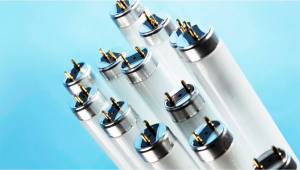
- 1. What are fluorescent lights?
- 2. Types of fluorescent lights
- 3. What fluorescent lights are best for autoflowers?
- 4. What are the advantages of fluorescent lights?
- 5. What are the disadvantages of fluorescent lights?
- 6. Can you grow autoflowers in fluorescent lights?
Grow lights serve as a great way to replace natural sunlight and grow outstanding autoflowers. But, apart from that, they have their own advantages. For instance, you can’t control nature, and weather fluctuations can seriously ruin your crop. On the other hand, grow lights give you more control over your plants, allowing you to even “change seasons” by altering the light cycle. You probably remember your school teacher talking about photosynthesis back in biology class. You might even remember the critical equation that underpins plant life as a whole. It all starts out with light. Leaves are the primary organ of photosynthesis for plants.
Leaf cells contain small organelles known as chloroplasts that are able to convert light into sugars that plants use as energy. However, a few more ingredients are required to see the process through to completion, namely carbon dioxide and water. Light provides the energy needed to convert atmospheric carbon and water into glucose (a carbohydrate) and oxygen. Yes, plants use light energy to essentially “eat” the atmosphere. Of course, out in nature, the sun provides ample light energy to raise myriad plant species from little seedlings into large, healthy, and productive plants. However, things are different indoors. Lack of sunlight in this synthetic environment means humans have to leverage technology to adequately illuminate their crops. Growers have a host of different lights to choose from to get the job done, including HPS and LED.
However, many cultivators place their trust in reliable and effective fluorescent lights. But why? Well, you’re about to find out. Below, you’ll learn everything you need to know about fluorescent lights. You might even opt to start using them yourself by the time you reach the bottom of the page! In short, grow lights let you play God. And there are a variety of grow lights available today. Back when growing cannabis at home was pretty new, many people used fluorescent lights that are almost forgotten today. Some growers utilize it even today to grow their favorite herb, but not for an entire cycle. Fluorescents have their own advantages. They emit very little heat and are easy to handle. So, don’t be too quick to write them off yet. If the idea of a cool Grow Room with minimal heat issues fascinates you, read on to know if you can grow autoflowers with fluorescent lights.
1. What are fluorescent lights?
A fluorescent lamp or tube is a device that emits light due to a chemical reaction occurring inside the glass tube. When gases and mercury react, they produce a coating of phosphor on the insides of the tube. This reaction creates ultraviolet light that’s very beneficial for plants to grow. Fluorescents can be used for several purposes, but horticulturists love them due to the UV light. Of course, we can’t see UV, because our eyes simply can’t detect light that belongs to this spectrum. However, beyond our limited vision, UV plays an important role in cannabis growing. You see, cannabis produces certain secondary metabolites to protect itself from a range of biotic (living) and abiotic (non-living) stressors. UV falls into the category of abiotic stress. But what are secondary metabolites, exactly? This term simply describes chemicals that plants make that don’t play a direct role in growth, development, and reproduction. Instead, these compounds lend themselves to defense and survival.
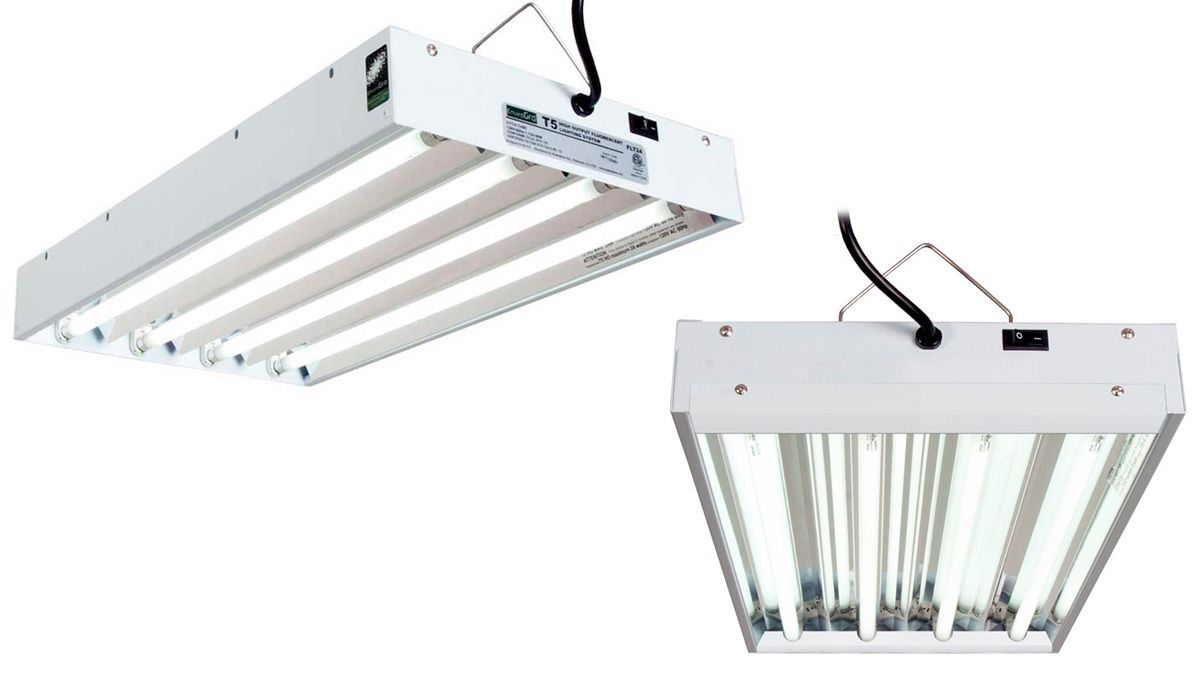
Cannabinoids, terpenes, and flavonoids belong to this chemical class. Of these, cannabinoids rank highest on the list of importance to most cannabis growers, and UV light helps to ramp up cannabinoid production. Think about this, what happens when you spend an extended amount of time in the sun? Provided you don’t overdo it, you’ll end up with a nice tan. Your skin cells react to the UV emitted by the sun and ramp up melanin production to reflect excess radiation, thereby protecting the skin. Plants don’t produce melanin as a defense against UV. Instead, they increase cannabinoid production and use the viscous resin that they produce as a form of plant sunscreen. Therefore, lights that contain UV may give your crop an edge when it comes to potency. They last for a long time, and unlike HIDs and LEDs, they don’t get too hot to the touch, making them bearable for plants and humans. Fluorescents are also referred to as Compact Fluorescent Lights or CFL, but CFLs were introduced much later. Even CFLs use the same technology of exciting mercury to emit light.
2. Types of fluorescent lights
There are several types of fluorescents including T12, T8, T5, and CFL lights. T12 lights were the ones used for growing at the very beginning when they were just introduced. Basically, fluorescent lights are named according to their diameter, shape, and wattage. While the “T” denotes that the lamp is tubular, “12” indicates that it’s twelve-eighths of an inch in diameter. Similarly, “5” in TS indicates that it’s five-eighths of an inch and “8” in T8 is eight-eighths of an inch.
T12 lights were the first ones to be used by growers. Lights in these fluorescents were produced by electromagnetic induction, and the only problem was that they weren’t very efficient to grow plants. T8 and T5 lights that came out much later were more powerful. T5 lights are most preferred today because they are significantly smaller in size compared to their counterparts. Although T5 lights are a tad more expensive than T8 and T12 lights, they are more efficient. You’ll need many T8 and T12 lights to match the efficiency of a T5 light. Plus, the light output has more lumen compared to previous fluorescent lights, thereby making it an ideal choice for cannabis growers.
3. What fluorescent lights are best for autoflowers?
Whether it’s a photoperiod or autoflowering cannabis strain, the best fluorescent light would be the T5 since it is small and highly effective. They are easy to maintain and last at least 20,000 hours. Although they are not as effective as LEDs or HIDs, they can be used to grow plants in the vegetative stage because they emit blue light that’s particularly effective.
4. What are the advantages of fluorescent lights?
Easily available
T5 lights are extremely common and are available almost anywhere. You don’t have to walk into a garden store to buy them because most general stores carry them.
Less heat
You’ll never have to worry about soaring temperatures in the grow room. Often, heat issues can cause more trouble than you can imagine. And that’s exactly why HIDs come with ballasts to reduce the temperature. As the temperature and heat increase in the grow room, your plants suffer. But, plants not growing may be your smallest concern, especially considering that excessive heat can literally burn your grow room!
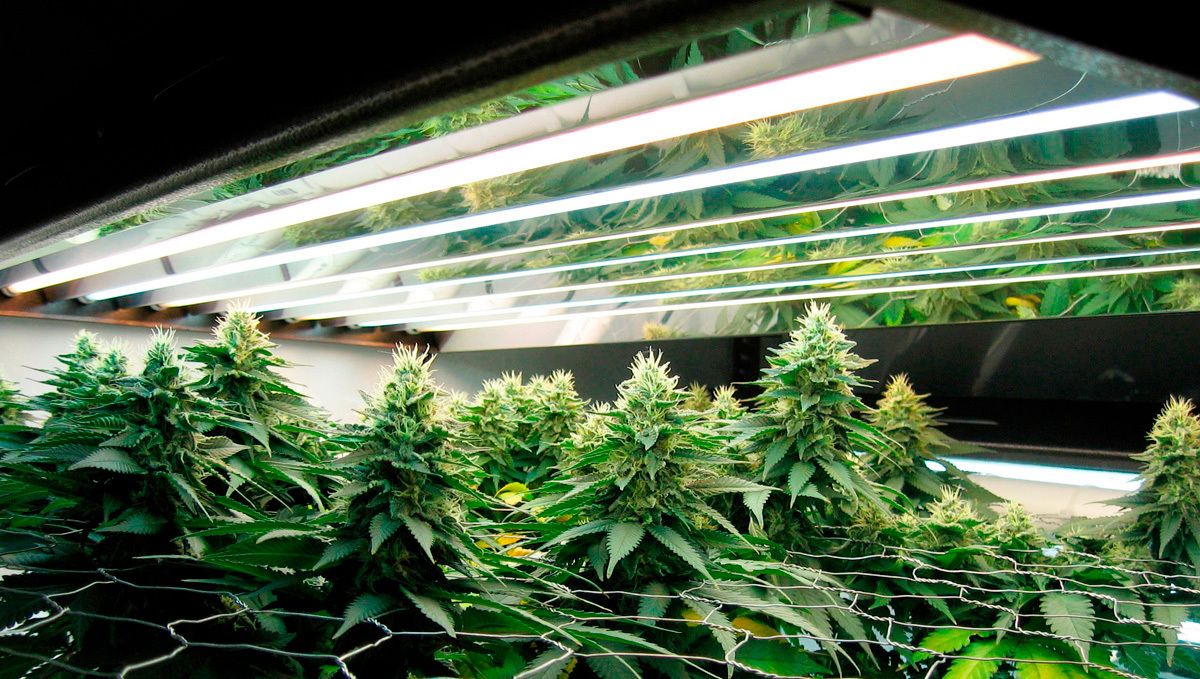
Even LEDs emit a lot more heat than advertised by most manufacturers. Most LEDs are fitted with fans to reduce the heat, but growers use additional fans to reduce the temperature to prevent mishaps. Also, LEDs and HIDs need to be placed at least 20 inches above the plants so the leaves don’t burn. If you notice leaves turning white, you can bet they are burnt. With fluorescents, heat is not a concern at all. No matter how close you place the lights, the plants don’t burn. Even if you place the lights about 2-3 inches above the plants, they tend to grow really well. For this very reason, fluorescents are perfect for seedlings.
Less expensive
Another major advantage of using fluorescents is that they are cheaper than LEDs and HIDs. Your initial investment will be a lot lesser than other high-intensity lights. And to top it all, they are cheaper to maintain as well. HIDs are notorious to draw too much power once you start using them. The initial investment may seem cheap but it will dig a deep hole in your pocket if you plan to grow plants for a long time. For example, let’s say you invest in a T5 grow light for instance.
Now, with 8 bulbs at 54 watts each, the total output is 432 watts. If you’re growing a good amount of plants, you’ll need at least two, making it a total of 864 watts. The average cost of electricity in the US is about $0.13, but it can fluctuate depending on where you’re located. To calculate the cost of electricity per month, you divide 864 by 1000 and multiply that by the rate. So, that’s (864/1000) * $0.13, which brings it to $0.112 per hour. Now, whether you’re growing autoflower or photoperiod plants, let’s assume you’re going with the 18/6 cycle, so multiplying $0.112 by 18 gives you $2.02 per day, and the cost per month would be $60.6. Applying the same formula to HPS lights, and considering that you have a 1000w bulb, the result would be $70 per month. The cost of additional fans and ballasts would be extra although many fixtures come with ballasts. The difference in costs may not seem a lot, but they do add up due to extra fixtures that are mandatory when using HIDs.
Uniform light distribution
Fluorescents are built in such a way that the canopy receives light in a uniform manner. Of course, the lights that were introduced earlier lacked this feature, but fluorescents in recent years have seen massive improvements.
5. What are the disadvantages of fluorescent lights?
Need to change lights
Fluorescent lights are mostly available in the 6500K spectrum otherwise known as cool blue or daylight spectrum. It’s great for cannabis plants, but they are good only in the vegetative or growing stage. The flowering period requires more red light or warm light – 2700K – spectrum, so you need to supplement the growth with 3000K fluorescents to help the plants develop big buds. Even HIDs need to be changed according to the cycle, so this isn’t a major disadvantage.
Not as powerful as HID or LED
Fluorescents don’t have as much power as HIDs or LEDs to penetrate deep into the canopy. For this reason, the plants need to be trained to keep them small since the lower portions of tall plants may not get enough light.
Less yield
If you’re in a pinch or can’t afford other grow lights, you can still use fluorescents in the flowering stage. However, note that they don’t produce as much yield as LED or HIDs. Growers report that fluorescents produce about 0.3 grams of cannabis per watt, but HIDs and LEDs produce at least four times more than that.
Lesser lifespan
Most fluorescents last for at least 15000 hours. So, if you’re growing autoflowers in an 18/6 cycle, the light will run for at least 1000-1100 hours per harvest, which means that you can harvest at least 15 batches of plants using a single fluorescent fixture. In terms of costs, you’ll be saving a bit more compared to HIDs because even HIDs last only for 20,000 to 25,000 hours; however, when compared to LEDs lasting for more than 100,000 to 150,000 hours, it’s evident that you’ll need to buy a few more fixtures to continue growing.
6. Can you grow autoflowers in fluorescent lights?
Autoflowers are easy to grow and adapt well. For this very reason, you can grow autoflowers using fluorescent lights. However, keep in mind that cannabis plants need specific spectrums to make their own food and the yields go down drastically if the conditions aren’t met. As long as you supplement the plants with the right spectrum, you’re good to go. To compensate for lower yields, reflectors can be used in the grow rooms to maximize as much light as possible. Several fixtures can be chained together using the daisy chain feature that’s usually available.
Considering the cost, lumen output, and the fact that fluorescents are easy to maintain, it’s up to you to decide. You can even add them along with your HIDs or LEDs to help the plants yield more. But, if you change the lights according to the cycles and take good care of the plants, fluorescents will serve as a great addition to your grow room.
Ok then, everything you need to know about using fluorescent lighting to grow autos (or any strain really) - but, as we have pointed out, they are anything but the gold standard in cannabis grow lighting. So, instead of "Can you grow cannabis with fluorescent lights?", maybe the question should be "Should you grow cannabis with fluorescent lights?"...
Should You Grow Autoflowers with Fluorescent Lights?
While you can get decent-ish results when using fluor options as your main grow light source, and there is a great range of grow-specific fluorescent lighting options available to use in your grow room, they just can not stack up against the big guns. LED panels have gone through a true revolution in the past decade, particularly in the last 5 years. Not all that long ago, HID lights were the preferred choice for growers looking to get the very best out of their crop, and while you can still rely on high-intensity discharge bulbs to provide your plants with the power they need, and the yields they deserve, you will be paying a premium - both in terms of heat produced and energy consumed.
LEDs on the other hand, are far more efficient in both respects. More importantly, though, they produce a huge spectrum of light that can be precisely tuned to meet the exact needs of your plants throughout the entire growth cycle. Sure, they are still a little more pricey for the initial layout (depending on which option you go for), but the fact that they consume less than half the energy of traditional high-powered lights means that that extra start-out cost is quickly recovered.
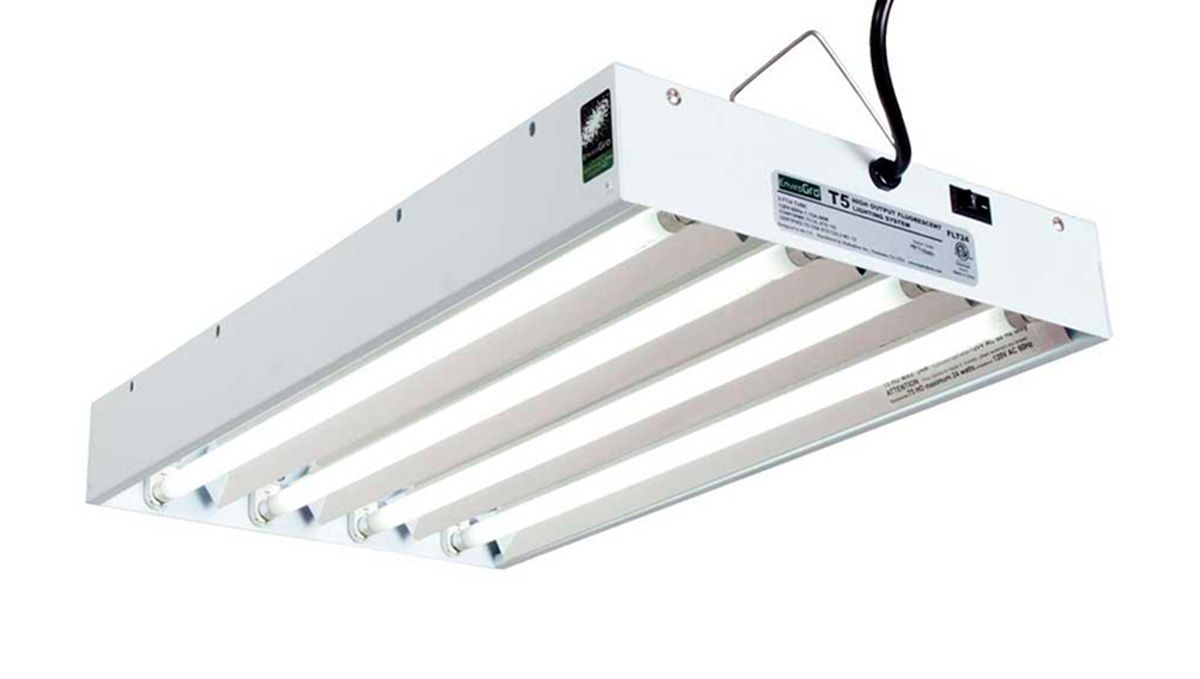
They offer the same or even better right penetration levels as HID options, and you don't need to worry about all that extra heat. This makes setting up an efficient ventilation system much easier, and when you factor in the much longer lifespan of LED grow lights, it's not hard to see why they have become so popular.
So, with all that in mind, which lighting option should you go for? If you can afford to buy an LED panel, then do it. You may think that it's overkill for a small closet grow, but honestly, you will be thankful for the extra power and efficiency in the long run. If, on the other hand, you are looking for a more affordable solution, then you could opt for fluorescent lighting. But be aware - if you want to get the most out of your plants, it is worth investing in the right grow-specific bulbs to get as much out of your setup as possible - and make sure that you are providing your plants with the exact spectrum of light they need when they need it. But in the end, your main priority should be providing your plants with the best possible environment - and if you are able to do that with fluorescent lighting, then go for it.







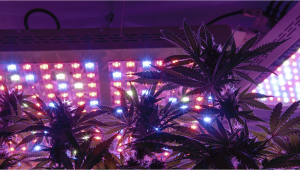

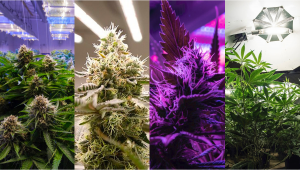
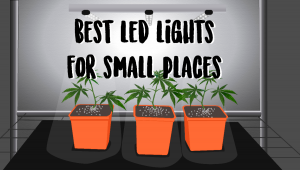

Comments